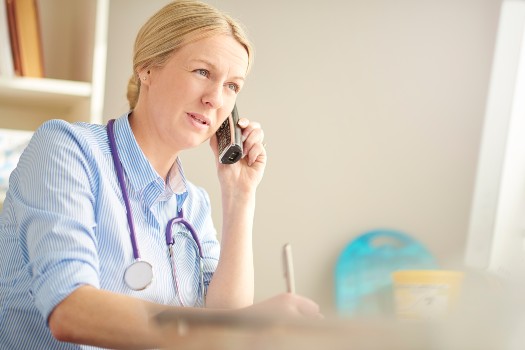Quarter of GPs say PCN opted out of phase 2 of Covid vaccinations, citing workload

Almost a quarter of GP partners in England say their primary care network (PCN) decided to opt out of phase 2 of the Covid vaccination campaign, with the main reason being intense workload pressures.
In a Pulse survey carried out in May, 95% of around 400 GP partners said their PCN took part in phase 1 of the Covid vaccination programme, while just 4% said their network never signed up.
However, only 72% of the 400 GPs said their PCN is participating in phase 2, with 24% stating their network had opted out.
Eight in 10 (79%) of those who said their PCN is not taking part in phase 2, and who stated a reason, put this decision down to ‘workload pressures’ in general practice, while 5% said they left because individual practices were unable to administer vaccines themselves, and 10% gave other reasons.
A handful of responses included the level of pay for vaccinations not being ‘adequate’ and PCNs that didn’t take part in phase 1 sticking with their decision.
Of those who have taken part in the Covid vaccination programme – either personally, or through the practice or PCN – 83% said it had made carrying out core GP work ‘significantly’ or ‘slightly’ more difficult, while only 14% said it had no impact.
Dr Cagdas Calisir, a GP partner in Hertfordshire, told Pulse that her PCN, during phase 1 of the programme, allocated GP, nurse and clinical pharmacist time away from surgeries to provide the Covid vaccine clinics.
She added that ‘once QOF and the local CFF (chronic disease framework) are back as well as expected increased demand with lockdown easing, our already tired workforce could not carry on’.
She said: ‘We saw phase one as our duty as we knew these patients needed us and our flexibility in primary care, whereas phase 2 patients were young and mobile. We will be back for flu and possible Covid vaccine boosters in autumn.’
Suffolk GP Dr Louise Beale told Pulse: ‘We did our best to protect the at-risk groups, but to continue the vaccination programme down the further cohorts would be at the severe detriment of our day-to-day care of patients and management of caseload, which is ramping up week by week, not to mention our own physical and mental health. As a mum, I am starting to forget what my family looks like!’
She added that her ‘small rural practice’, which has three full-time GPs, is, unlike before, having to provide all day open access from 8am to 6:30pm, with the practice being ‘flooded with telephone calls, emails and e-consults’ and managing 60 to 70 patient contacts a day.
Dr Nadeem Ahmed, a GP partner in Reading, said phone lines were ‘choked’ during phase 1 vaccinations, with receptionists ‘stretched to the limit’. ‘We reached a breaking point, and if we were to continue with going back to business as usual, we would not have coped,’ he added.
Dr Liz Clarke, a GP partner in Manchester, told Pulse that practices are now having to deal with a backlog in treatment and rising demands, with ‘long waiting times for secondary care, an increased burden of delegated work and the absolute clinical need to resume proper follow up of our patients with long term conditions’.
She said: ‘A typical day in general practice for myself and colleagues is now in excess of 12 hours with further admin at night and weekends. This is before additional sessions at the vaccination centre. For us and our staff to continue this was unfortunately not possible in the interests of delivering safe care to our patients.’
An NHS spokesperson said: ‘Primary care networks are playing a vital role in the rollout of the live-saving covid vaccine programme and the number of vaccination sites changes in line with the needs of local communities and is actually increasing with even more sites offering jabs this month, compared to last month.’
NHS England director of primary care Ed Waller at the time said practices taking part had to be able to continue delivering core contractual services at the same time.
Pulse July survey
Take our July 2025 survey to potentially win £1.000 worth of tokens

Visit Pulse Reference for details on 140 symptoms, including easily searchable symptoms and categories, offering you a free platform to check symptoms and receive potential diagnoses during consultations.
Related Articles
READERS' COMMENTS [1]
Please note, only GPs are permitted to add comments to articles











Well done. The more you opt-out of, the more you can opt-in for (i.e. for yourself).